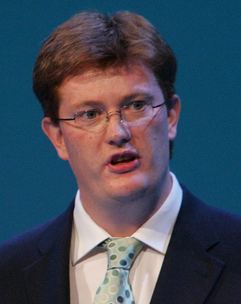The Scottish Parliament is to get new powers under the UK coalition government’s programme unveiled in the Queen’s Speech.
Work will now begin on legislation to give Holyrood tax powers, as well as powers over drink-driving, speed limits and airguns.
The new Scotland Bill one of 20 brought forward by the Tory-Lib Dem coalition was announced amid the traditional pomp and ceremony at the state opening of parliament.
Sixteen of the proposed pieces of legislation apply to Scotland in a programme underpinned by the need to reduce the deficit and restore economic growth.
As well as implementing the recommendations of the Calman Commission on the future of devolution, other key aspects of the Queen’s Speech affecting Scotland are reform of financial services regulation, reform of the benefits system, modernisation of Royal Mail and restoration of freedoms and civil liberties including through the abolition of identity cards and the repeal of unnecessary laws.
Scotland will also be affected by a Parliamentary Reform Bill which will restore trust in democratic institutions, create fixed-term parliaments, provide a referendum on changes to the voting system and fairer and fewer constituencies, give proposals to reform the second House and give the right to recall MPs.
Scottish Secretary Danny Alexander said the measures put Scotland at the heart of the new government’s legislative programme.
He said, “Today’s Queen’s Speech will deliver real benefit for Scotland. Sixteen out of the 20 new bills will contain provisions that apply to Scotland, either in full or in part.
“We have made clear this new coalition government’s chief priority is to reduce the budget deficit.
“That is why this strong programme of legislation focuses on restoring economic growth across the whole of the United Kingdom.”Benefits for ScotlandHe added, “The people of Scotland will benefit from these measures which will safeguard jobs, cut taxes and restore the earnings link for the basic state pension.
“And Scotland will benefit from the measures we are taking to reform politics and restore trust, at Westminster and beyond.
“As part of these important constitutional reforms we will bring forward a Scotland Bill to implement recommendations from the Calman Commission which will build on and improve the current devolution settlement in Scotland.”
Mr Alexander said, “So today’s announcement puts Scotland at the heart of the legislative programme.
“The changes will be significant as the legislation is rolled out and step by step we will move together towards a better future.”
The Calman Commission established with the support of Labour, Tory and Lib Dem MSPs recommended new powers should be devolved from Westminster to Holyrood, including responsibility for raising half of Scotland’s income tax.
The SNP Scottish Government wants full fiscal powers and is concerned a rise in the income tax allowance would hit Scotland’s tax take under the Calman proposals and that personal increases in National Insurance would go straight to the Treasury.
It is not expected that Holyrood will get any new powers before the Scottish elections in May next year.Devolution of powerCommenting on the Queen’s Speech, SNP Westminster leader Angus Robertson said, “While the legislative programme was light on detail, some of the ideas contained within it have potential to deliver improved economic decision-making for Scotland.
“The opportunity to devolve more powers to the Scottish Parliament is welcome but these have to be the right powers.
“On areas such as air weapons, the drink-drive limit and responsibility for Holyrood elections, there is no disagreement, and these powers should be transferred as quickly as possible.”
He added, “On financial responsibilities, we need the powers to grow the Scottish economy and to give Scottish business a competitive advantage decisions relating to Scotland’s finances should be taken in Scotland.
“This would settle the age-old disputes about funding, and allow both governments to focus on economic recovery.
“The SNP and many others have argued that the limited financial regime put forward by the Calman Commission is unworkable.”
Scottish Labour leader Iain Gray said, “The Tory-Lib Dem government have said they will bring Calman forward but, as ever, the devil is in the detail.
“The government must not back-track on the commitment they gave before the election to implement the Calman Commission recommendation, including extra tax powers for Holyrood.”
He added, “People in Scotland need to know what powers the Scottish Government will have when they vote in May 2011 so there cannot be any drift now from this Tory-Lib Dem government.”
Photos used under Creative Commons licence courtesy of Flickr users UK Parliament and Liberal Democrats.
